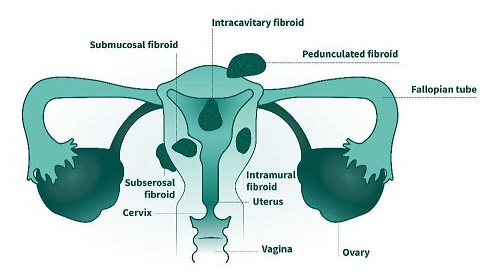Female Infertility

IS IT MY FAULT?
TRUTH: Men and women are equally likely to experience infertility. Around 1/3 of cases are caused by problems with the man, 1/3 by the woman, and 1/3 by both partners or by problems that cannot be determined1
There are many factors that could be causing your infertility and so you shouldn’t focus on whose ‘fault’ it is.

Infertility isn’t necessarily a permanent condition and it doesn’t mean that you’ll never have a child. You may just need a little specialist help to get there.
WHAT ARE THE CAUSES OF FEMALE INFERTILITY?
Unfortunately, sometimes there is no clear factor and you may be diagnosed with unexplained infertility. In this case, your doctor may recommend undergoing more advanced fertility treatment – ART treatment. Some of the known related factors are:
Age
As you get older, your fertility begins to decline.
A healthy 30-year-old woman has around a 20% chance of conceiving each month.3
However, a 40-year-old woman has a less than 5% chance of conceiving each month.3
ART can be considered.
These account for around 25% of fertility difficulties.4
Each month, your ovaries must release a healthy egg (ovulation) in order to conceive.
If you have irregular or absent periods, are overweight or underweight, you may not be ovulating.
Ovulation problems can usually be treated with medication.4
Tubal disease accounts for between 25% and 35% of female infertility.6
Your fallopian tubes are very delicate and can easily become blocked or damaged.
Blockages can be caused by scarring from a previous infection or previous abdominal surgery.
This can prevent sperm from reaching your egg, and interfere with an embryo’s development and its implantation into your uterus lining.
Blocked fallopian tubes may be treated with surgery, or you may need to undergo in vitro fertilisation (IVF).

Around 30–50% of women with endometriosis are infertile.7
Endometriosis occurs when tissue that usually lines the inside of your uterus grows on your ovaries, fallopian tubes, or on the outside surface of your uterus.1
This can cause heavy and painful periods, scarring, and adhesions (organs sticking together).5
Small keyhole surgery (laparoscopy) will determine whether you have endometriosis.
It can usually be treated by medication and surgery, and you may be offered ART treatment.

Around 5–10% of fertility problems are caused by fibroids (myomas or leiomyomas).
These are non-cancerous growths made up of muscle and tissue that develop in or around your uterus.
They can change the shape of your uterus or fallopian tubes, or cause blockages.
This can make it difficult for sperm to reach your egg or an embryo to implant into your uterus lining.
The exact cause of fibroids is unknown, and whether they cause symptoms depends on their location, size and number.
Fibroids may be treated with medication or surgery.

Between 70−80% of women with PCOS may be infertile.9
PCOS causes your ovaries to become enlarged and many small cysts to grow on your ovaries’ thickened surface.4
This can cause irregular periods which, in turn, affect your fertility.4
PCOS is usually diagnosed via an ultrasound scan.
It can be treated with medication or surgery, and ART treatment can be considered.

Between 3% and 8% of female infertility cases can attributed to abnormalities of the cervix.10
Cervical mucus helps sperm to move through your vagina to reach your egg.11
Some women may not have enough mucus, it may be too thick and sticky or contain antibodies that are hostile to sperm.11
Problems with cervical mucus may be treated with medication, by placing sperm directly into your uterus, or with an ART treatment that brings together your egg and sperm outside of your body.
Sexually transmitted infections (STIs) such as chlamydia or gonorrhoea can cause pelvic inflammatory disease (PID).5
PID can cause blockages in your fallopian tubes, and increase the risk of having an ectopic pregnancy.8,12
An ectopic pregnancy occurs when an embryo implants outside of the uterus12
Blockages in your fallopian tubes can potentially be treated with surgery, or ART treatment may be possible.
The menopause is a natural process that women go through in which their periods stop and they are no longer fertile.
Some women undergo early menopause and their periods stop before they are 40 years old.
If you have undergone an early menopause, you’ll need to undergo an assisted reproductive technologies (ART) treatment in order to conceive, or use donor eggs (note that availability may vary between countries as egg donation is not offered in all regions).
IS THE CONTRACEPTIVE PILL WHY I’M INFERTILE?
MYTH: Taking contraceptive pills for several years increases chances of infertility.
TRUTH: Studies have not shown a link between infertility and using the pill for a long period of time.
Like many women, you may have used the contraceptive pill for several years to carefully avoid an unwanted pregnancy. When you’re ready to conceive, it’s understandable to feel cheated if you don’t get pregnant immediately.
However, studies haven’t shown a link between infertility and using the pill for an extended period of time.13
So while the unknown is frustrating, you shouldn’t worry that you should have stopped using contraception earlier.
SEEKING HELP
You should speak to a doctor about your fertility if:
- You know that you have any of the conditions listed above
- You are under 35 years old and have been trying to conceive for 1 year3
- You are over 35 years old and have been trying for 6 months3
FERTILITY TESTS FOR WOMEN
What fertility tests will be performed initially?
If you visit your family doctor first, they may conduct some simple and less invasive fertility tests. These may include:
- General physical examination
- Weight check
- Pelvic and genital examination
- Breast examination
- Routine cervical screening (pap smear)
- Blood tests
Afterwards, you and/or your partner may be referred to a fertility specialist if there is a need for further or more invasive tests.
What are fertility doctors testing for at the clinic?
Your fertility doctor will check that you and/or your partner have:
- The right balance of hormones to help eggs to mature
- Regular ovulation
- A healthy, functioning uterus and intact fallopian tubes
- A thick uterus lining that could nourish an embryo
- Who performs the fertility tests at the clinic?
Your fertility team is made up of a range of doctors and fertility nurses, along with specialists such as reproductive endocrinologists and embryologists, who oversee more complex treatments such as in vitro fertilisation (IVF).
Ask your doctor or fertility team in the clinic about their different roles and how they will be supporting you.
COMMON INVESTIGATIONS AND FERTILITY TESTS FOR WOMEN
Preliminary tests1,2
- Personal history — You will be asked about your medical history and sex life in detail. If you feel uncomfortable discussing anything in front of your partner, ask to speak with your doctor in private
Physical examination — You may have a pelvic examination to check the shape and size of your uterus. Your breasts may also be examined physically, and your weight and body mass index (BMI) measured - Cervical screening (pap smear) — You may be asked about your most recent cervical screening test or a new smear may be performed. This helps to rule out any infection or abnormal cells on your cervix
- Screening blood and urine tests — You may have some routine and some investigational blood and urine tests. Please ask your fertility clinic about the tests that will be done
- General health tests — You may be tested for rubella (German measles), chlamydia, hepatitis B and C, and human immunodeficiency virus (HIV). Depending on your heritage, you may also be tested for diseases or disorders that are more common amongst certain ethnic groups, such as sickle cell anaemia or thalassaemia
Regular monitoring - Hormone blood and urine tests — These tests will be taken on specific days of your menstrual cycle to measure different hormone levels.2 These will help to determine if you are ovulating,2,3 as well as the quality and quantity of the eggs produced (your ovarian reserve).4 This can help predict the ovary’s response to IVF treatments
- Temperature — Your temperature may also be taken throughout the menstrual cycle to identify when you are ovulating3
MORE ADVANCED FERTILITY TESTS
Antral follicle count (AFC) — This test uses an internal ultrasound (using a probe placed into the vagina) scan to show the number and size of follicles present in the ovaries2
Hysterosalpingogram (HSG) — This test applies a coloured dye inside the uterus, after which X-Rays are taken, to check the shape and size of uterus and fallopian tubes. It will also show the doctor if there are any tubal blockages or cysts5
Laparoscopy — This test involves insertion of a small surgical telescope into the abdomen, under general anaesthetic.5 This can check for any blockages, growths or signs of endometriosis around the uterus and fallopian tubes5
Related Brochures

sexual-health-7

male-infertility

pcos-polycystic-ovarian-syndrome
- INSULIN ....